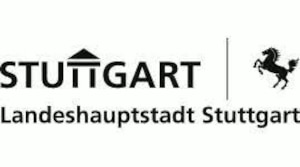PhD position - Diving Deep into the Microscopic Realm of Aquatic Habitats: Biodiversity Assessm[...]
Stellenbeschreibung:
Overview
PhD position - Diving Deep into the Microscopic Realm of Aquatic Habitats: Biodiversity Assessment of the Enigmatic Phytodiniales (Dinophyceae)
Institute : Systematics, Biodiversity and Evolution of Plants
Subject areas/Research fields : Biology: Botany and plant science, Ecology, Evolutionary Biology, Limnology, Systematics (Taxonomy)
Name of supervisor : Prof. Dr. Marc Gottschling
Funding : LSM-CSC/DAAD-GSSP (LSM)
Project title : Diving Deep into the Microscopic Realm of Aquatic Habitats: Biodiversity Assessment of the Enigmatic Phytodiniales (Dinophyceae)
Within the unicellular Dinophyceae (Alveolata), the Phytodiniales are among the groups whose biodiversity is currently the least well researched. While many other Dinophyceae are predominantly planktonic, Phytodiniales are characterised by a mostly immotile lifestyle. In some cases, they exhibit interspecific interactions with other organisms in the form of epiphytism or even parasitism. This project employs a methodologically diverse approach that includes fieldwork, light, fluorescence and electron microscopy, Sanger sequencing, phylotranscriptomics, taxonomy and nomenclature. Material will be collected in a targeted manner, primarily from type localities, many of which are located in the Munich area, or from the ponds of the Nymphenburg Botanical Garden, where dark taxa of the Phytodiniales were already detected in a previous metabarcoding project. The research will be based on self-established unialgal strains, for which optimal ecological conditions for cultivation will be determined in the course of the project. Ideally, phytodinalean species that have been described more than 100 years ago, and rarely observed since then, will be successfully cultivated and studied in detail. It is also highly likely that this pioneering project will identify and describe species still unknown to science, a situation that is not uncommon in the microscopic realm, even in seemingly well-explored regions such as Central Europe.
References :
Müller, A., Stark, M., Schottenhammel, S., John, U., Chacón, J., Klingl, A., et al.(2024). The second most abundant dinophyte in the ponds of a botanical garden is a species new to science. Journal of Eukaryotic Microbiology, 71(2), e13015.
Renner* SS, MD Scherz, CL Schoch, M Gottschling & M Vences (2024):Improving the gold standard in NCBI GenBank and related databases: DNA sequences from type specimens and type strains. Syst Biol 73: 486–494.
Tillmann, U., Bantle, A., Krock, B., Elbrächter, M., & Gottschling, M. (2021).Recommendations for epitypification of dinophytes exemplified by Lingulodinium polyedra and molecular phylogenetics of the Gonyaulacales based on curated rRNA sequence data. Harmful Algae, 104, .
Apply : Please send your application through the online portal of the Graduate School Life Science Munich (LSM)
Job details
Title
PhD position - Diving Deep into the Microscopic Realm of Aquatic Habitats: Biodiversity Assessment of the Enigmatic Phytodiniales (Dinophyceae)
Institution : Ludwig-Maximilians-Universität München
Context : Ludwig-Maximilians-Universität München is a leading research university in Europe. Since its founding in 1472 it has been committed to the highest ...
What you will do
- Engage in fieldwork and laboratory work to collect and study Phytodiniales.
- Use light, fluorescence and electron microscopy, Sanger sequencing, and phylotranscriptomics.
- Contribute to taxonomy and nomenclature work; cultivate self-established unialgal strains and determine optimal ecological conditions for cultivation.
- Work with type localities in Munich area and Nymphenburg Botanical Garden ponds; aim to describe species new to science or revisit long-described species.
What we look for
- Interest in biodiversity of aquatic microorganisms and experience with microscopy or molecular techniques is desirable.
- Willingness to conduct fieldwork and laboratory cultivation; ability to work independently and as part of a team.
- Application materials via the online portal of the Graduate School Life Science Munich (LSM).
Stelleninformationen
Typ:
VollzeitArbeitsmodell:
Vor OrtKategorie:
Erfahrung:
2+ yearsArbeitsverhältnis:
AngestelltVeröffentlichungsdatum:
05 Nov 2025Standort:
Martinsried
KI Suchagent

Möchtest über ähnliche Jobs informiert werden? Dann beauftrage jetzt den Fuchsjobs KI Suchagenten!
ähnliche Jobs




